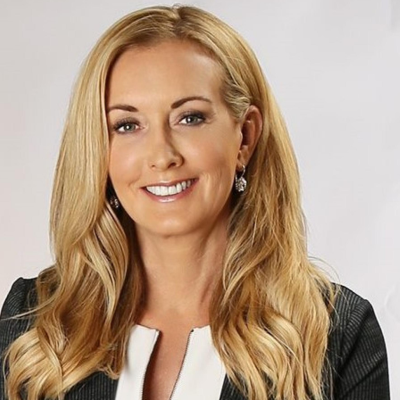In Washington, a battle builds over a right to sue pesticide makers
Listen to the audio version of this article (generated by AI).
It’s been seven years since Germany’s Bayer bought US agrochemical giant Monsanto, inheriting not only the company’s vast portfolio of seeds and pesticide products, but also more than 100,000 lawsuits alleging Monsanto’s popular Roundup herbicide causes cancer. Bayer, which has so far paid out billions of dollars in settlements and jury verdicts to cancer victims, has been working – so far in vain – to put an end to the litigation and to block any future such cases.
Now, the company appears closer than ever to success, as many Republican congressional leaders push for measures that would effectively block lawsuits against pesticide makers around the country.
A group founded by Bayer called the Modern Ag Alliance is the face of the legislative push, advocating for liability shields they say are necessary to allow companies to continue to sell pesticides that farmers use to kill weeds and bugs in their fields.
The group says it represents more than 100 agricultural organizations, including farmers who grow wheat, corn, soybeans and other key food crops.
“Without legislative action, a potential catastrophe is on the horizon that could result in many farmers going out of business and food prices rising even further,” the alliance warns on its website.
The alliance has been lobbying for the passage of state laws blocking such lawsuits, so far succeeding in two states – Georgia and North Dakota – and continues to lobby for such laws in all 50 states.
But the immediate battleground is in the halls of Congress where a provision tucked into a congressional appropriations bill is outraging consumer advocates, including those affiliated with the influential Make America Healthy Again (MAHA) movement. Similar protective language for pesticide makers is expected to be included in the new Farm Bill as well.
“Bayer is in a desperate position,” said Kelly Ryerson, a leading MAHA advocate who has been lobbying lawmakers and her 84,000 social media followers to fight back against pesticide company protections. “Rather than slapping a [warning] label on the side of the product, they would rather take on the enormous challenge of changing US federal and state law.
“The audacity of elected officials voting for legislation to fully strip our legal rights away when injured by chemicals is stunning, especially in this age of MAHA when an unprecedented number of Americans are rallying against toxins in food and the environment,” Ryerson said.
“Important investments”
Bayer has made it clear that changing laws in its favor is a priority. The company states on its website that without “legislative certainty,” lawsuits over its glyphosate-based Roundup and other weed killers can impact its research and product development and other “important investments.”
The company says the Environmental Protection Agency (EPA) should be the ultimate arbiter of product safety and what warnings should be required on product labels. If the EPA approves a product label, consumers should not be able to sue companies for failing to warn of perceived risks, according to Bayer.
In a statement to The New Lede, Bayer said federal legislation is “needed to ensure that states and courts do not take a position or action regarding product labels at odds with congressional intent, federal law and established scientific research and federal authority.”
Bayer has already removed glyphosate, classified as “probably” carcinogenic to humans by World Health Organization cancer experts, from consumer herbicide products. And the company has threatened to stop selling it to farmers if the litigation is not brought to an end.
The company disputes, however, that the appropriations bill will provide that certainty, saying in its statement that the language doesn’t prevent lawsuits and asserting it does in a “distortion of reality.”
The relevant section of the House version of the appropriations bill – Section 453 – does not mention litigation or pesticide company liability. Section 453 simply says that no funds can be used to “issue or adopt any guidance or any policy, take any regulatory action, or approve any labeling or change to such labeling” inconsistent with the conclusion of an EPA human health assessment.
But critics say the language effectively would impede states and local governments from warning about risks of pesticides even in the face of new scientific findings about health harms if such warnings are not consistent with outdated EPA assessments. The EPA itself would not be able to update warnings without finalizing a new assessment, the critics say.
And because of the limits on warnings, consumers would find it nearly impossible to sue pesticide makers for failing to warn them of health risks if the EPA assessments do not support such warnings.
The language is “by design, sneaky and complicated and hard to explain,” said Daniel Hinkle, senior state affairs counsel for the American Association for Justice, who has been lobbying against the action. “Nobody thinks that a giant chemical company should be able to lie about the risks of using their product and get away with it. It’s just making sure that people understand that is what is at stake,” Hinkle said.
The language is also clear to the Farm & Ranch Freedom Alliance, which warns in an “action alert” opposing the measure that it would “give pesticide manufacturers immunity from lawsuits, even when their products devastate a farmer’s crops, sicken farm workers, or contaminate organic fields.”
And even though Bayer downplays the significance of the appropriations language, its Modern Ag Alliance promotes support for Section 453 as a way “Congress can put American farmers first,” and says having “enough healthy, affordable food depends on it.”
“Very worried”
US Rep. Chellie Pingree, a Democrat from Maine who tried but failed to overturn the language in a July appropriations committee hearing, said she is “very worried” about the “outrageous” efforts to protect pesticide companies from litigation.
“We’re talking about chemicals here that are already prone to health risks,” Pingree said. “And the chemical industry is trying to keep that information from consumers … and then to have immunity from being responsible if you get cancer from being in the presence of these chemicals.”
The language is not currently included in the short-term government spending package being debated ahead of a looming government shutdown that would occur at the end of the month in the absence of continued spending authorization.
But it is expected to see support in both House and Senate appropriations bill versions once the short-term budget is resolved. As well, the new Farm Bill is expected to include language limiting or preventing pesticide injury lawsuits, with strong signals from Glenn Thompson, chairman of the US House Committee on Agriculture favoring such protections.
Thompson has weighed in on the side of Bayer in the past in the company’s ongoing efforts to get the US Supreme Court to weigh in on the issue of federal “preemption” over pesticide regulation.
The involvement and influence of the MAHA movement is adding a bipartisan element to what otherwise might be a highly partisan fight, raising awareness with voters in both red and blue states about the issues at stake.
Max Lugavere, a health journalist, author and podcaster who posted a photo of a MAHA-related visit to the White House to his 1.1 million Instagram followers, said pushing lawmakers is important, but “awareness among everyday people is the first domino.”
Citing “growing evidence linking pesticides to health risks,” Lugavere said “stripping away legal recourse in these cases wouldn’t just be wrong, it would be a tragedy.”
For California lawyer Brent Wisner, who helped lead the early Roundup litigation against Bayer, the efforts by lawmakers to protect the company against future litigation is un-American and potentially unconstitutional.
“I don’t care what party you are in, if you get poisoned by a pesticide manufacturer you want to be able to sue. You need to be able to sue,” Wisner said. “For you to think otherwise you have to assume that the EPA is infallible and that our federal government’s regulators are the top notch. Bayer is paying millions of dollars to get these laws passed because it’s cheaper than it is to pay people they’ve given cancer to.”
(A version of this article was co-published in The Guardian.)
(Featured photo by Chad Stembridge on Unsplash.)





September 25, 2025 @ 5:44 am
if congress thinks it’s ok and safe they should be made to live next to people that use it and spray it then watch what happen if they or there family get sick from it . Big money talks to these people in gov.
September 24, 2025 @ 12:41 pm
What a piece of shit company.